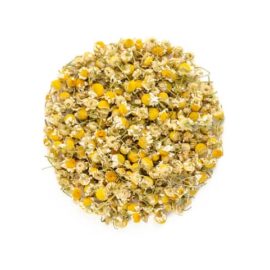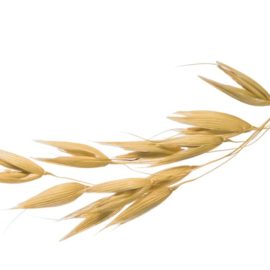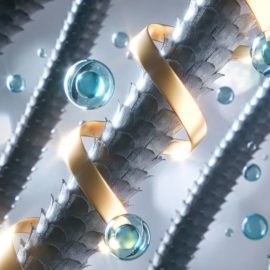Hydrolyzed wheat protein is becoming increasingly ubiquitous in ingredients lists in premium hair and skin care. This responds to a wider trend in which consumers are showing preference for products with familiar, recognizable ingredients derived from nature. In fact, according to the latest research, 18% of French consumers have replaced a regular personal care product with a natural/organic version in the last three months (Lightspeed/Mintel, 2019).
However, this important shift in consumer behavior extends to the ingredients themselves and how they are sustainabily sourced. Here, we examine how this two-fold trend is operating in regard to wheat protein for hair, an increasingly sought-after extract.
Content
What is hydrolyzed wheat protein?
Despite its new-found prominence, it has been used in beauty and personal care for several years. This is because hydrolyzed wheat protein – also known as phytokeratine – is rich in amino acids. As these proteins are naturally occurring, hydrolized proteins for hair care frequently make an appearance on the ingredients lists of organic beauty brands.
To briefly elaborate on how the agent operates, hydrolized proteins for hair serve to swell the hair shaft to lock in moisture and volumize. Wheat protein for hair then forms a protective film on the surface of the hair creating a silky, shiny effect.
Wheat proteins are also useful in skin care and cosmetic products, as this action also helps retain moisture in the epidermis. The proteins also serve to firm and tighten the skin, creating an anti-aging effect.
Hydrolyzed wheat protein for hair: does it contain gluten?
However, those that have been monitoring trends in organic beauty may observe something somewhat contradictory in the rise of hydrolyzed wheat protein. As introduced, conscious consumers are demonstrating a preference for recognizable, food-based ingredients. A recent survey conducted by GlobalData suggested that all over the world, consumers perceive food-like ingredients to be safer. And yet, in the health food space, wheat and gluten products have earned themselves somewhat of a bad name as awareness around celiac disease and other wheat sensitivities increases. The beauty market is however different, and gluten may be present in different products that contain hydrolyzed wheat protein, as it incorporates benefits such as moisturizing.
Is it safe for gluten-sensitized consumers?
Despite the prevalence of gluten-free products in health food, the landscape in hair and beauty is different. According to a study conducted by The Cosmetic Ingredient Review (CIR) Expert Panel hydrolyzed wheat protein and hydrolyzed wheat gluten, which function as skin- and hair-conditioning agents, will not elicit reactions in sensitized individuals. Their conclusion was that even if an individual has a dietary wheat sensitivity, they could enjoy the grain’s cosmetic properties safely.
Stand out: ethically-sourced hydrolyzed wheat protein in hair products
Numerous brands are responding to the demand for natural, organic ingredient. They do this by adding hydrolyzed wheat protein in hair products and beyond.
However, to stand out in a crowded field, brands need to prioritize the ethical sourcing of natural ingredients. According to the Mintel Trend Driver Value, we are seeing a shift in consumers’ shopping habits. They’re increasingly more mindful of preserving the environment and practice purposeful and ethical purchasing behavior.
Therefore, sustainable sourcing should be a priority for brands that market ‘natural’ or ‘organic’ products. Such brands will face more scrutiny about their sourcing. There is a perception amongst consumers that natural products are better for the environment (Mintel, 2017). However, this is not always necessarily true. With grains like wheat, intensive farming can exhaust resources. Therefore, brands that want to capitalize on the hydrolized wheat protein trend need to emphasize that they’ve sourced their wheat in a sustainable manner – enabling them to distinguish their brand from the rest.
Provital has recognized the need for this twofold approach and developed its active Keraveg. Combined with Matrix Plus, this active has a unique sequential release system for hydrolyzates. One that repairs and rehydrates hair fibers for strong, shiny hair. Using wheat that is ethically sourced, we ensure beauty brands they can make products that care for both the hair and the environment. Just as health-conscious and environmentally-aware consumers are demanding.
No comments yet
There are no comments on this post yet.





Leave a comment